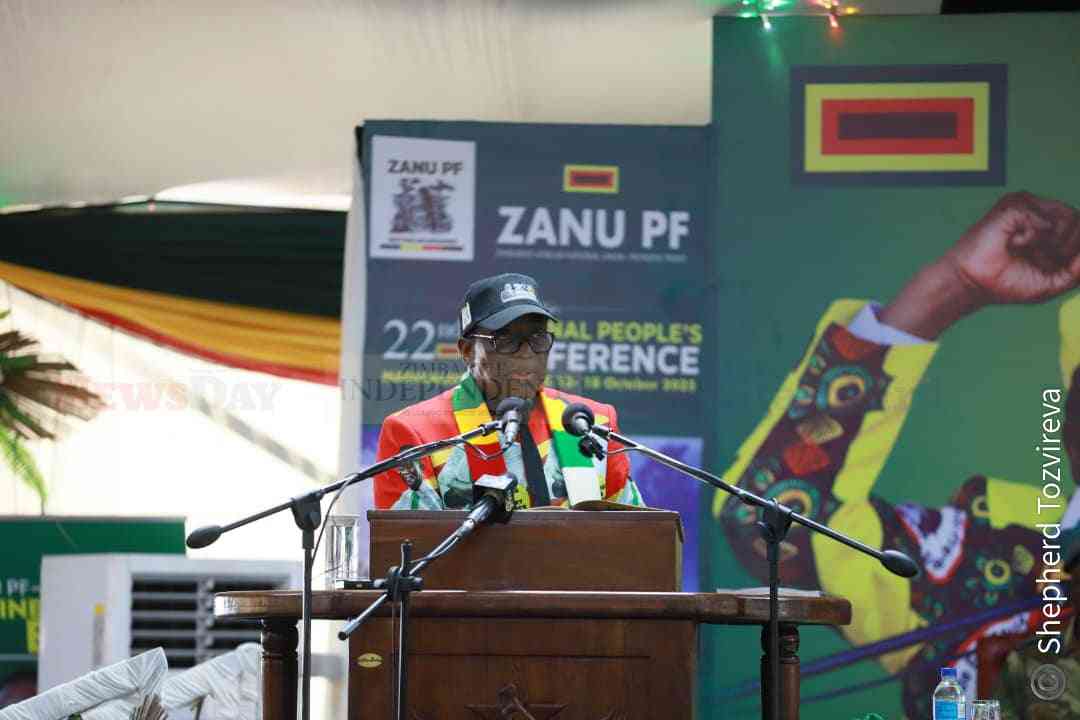
HOW generous our President is.
That, at least, is the message from government this week.
Labour minister Edgar Moyo announced on Thursday that President Emmerson Mnangagwa had felt pity for the country’s hard-pressed civil servants.
As a result, the President had personally “arranged” a once-off US$150 bonus — to be paid in two US$75 instalments in November and December — to brighten the festive season.
We are told this gesture is part of efforts to improve the welfare of civil servants and pensioners, to build a “motivated and productive public service”.
Alongside the bonus, government has also announced a raft of promises: the long-awaited implementation of the Job Evaluation Remuneration Framework in the first quarter of next year, restoration of the vehicle rebate scheme to 2022 levels, recapitalisation of the Premier Service Medical Aid Society, and even a home ownership scheme, with 26 000 housing stands identified for allocation.
Finally, someone in government seems to have found their conscience. Or so it seems.
For years, civil servants have begged for relief — pleading for the restoration of their pre-October 2018 salaries, better working conditions and basic dignity.
- Mavhunga puts DeMbare into Chibuku quarterfinals
- Bulls to charge into Zimbabwe gold stocks
- Ndiraya concerned as goals dry up
- Letters: How solar power is transforming African farms
Keep Reading
They have protested, petitioned and endured repeated promises that never materialised.
Their calls have mostly been met with silence, scorn or threats.
And now, suddenly, the President is in a generous mood.
The timing is telling.
After years of resistance and neglect, government’s newfound sympathy appears less like benevolence and more like calculation.
Why now? What has triggered this wave of compassion?
Civil servants — the teachers, nurses, police officers and administrators who keep this country functioning — have every reason to be wary.
The sudden gifts, the grand gestures and the conveniently timed announcements all carry a familiar scent: politics.
In a country where economic hardship is chronic and wages are perpetually eroded by inflation, the ruling party has long understood the political value of short-term relief.
It is a tried-and-tested formula — a quick injection of foreign currency here, a promise of housing there — just enough to pacify discontent without fixing the system that creates it.
To call a US$150 bonus “generous” is to overlook the scale of the suffering that civil servants have endured.
For many, that amount will barely cover a week’s groceries, let alone rent or school fees.
The gesture, though welcome, is symbolic at best — a reminder of how low expectations have sunk.
The framing of this payment as an act of presidential charity, rather than a policy decision rooted in justice and fairness, is perhaps the most troubling part.
When State employees’ welfare depends on the benevolence of one man — when their survival is cast as a favour rather than a right — the very idea of a professional, independent civil service is undermined.
Civil servants risk becoming squatters in the President’s pocket: dependent on handouts, fearful of speaking out, grateful for crumbs when they deserve a fair share.
That dependency erodes both morale and integrity.
It also creates a dangerous political culture in which loyalty is bought, not earned, and silence is rewarded more than service.
The government’s promises of housing and medical reform, while commendable, must be viewed with cautious optimism.
Such commitments have been made before — and quietly shelved once the political moment passed.
Implementation, not rhetoric, will determine whether this is genuine reform or another performance of sympathy.
Zimbabwe’s public servants deserve more than pity.
They deserve predictable, dignified salaries pegged to the cost of living; functioning health care; and access to affordable housing — not as gifts, but as rights earned through service.
True leadership is not measured by how many handouts are dispensed, but by how consistently justice and fairness are upheld.
If the President truly wants to build a “motivated and productive” workforce, he must start by dismantling the culture of patronage that treats workers as subjects of mercy rather than partners in national development.
The bonus might buy a smile for Christmas — but it will not buy back dignity lost through years of neglect.
Civil servants must not be blinded by temporary relief.
A fish may think it is being fed, but it is really being baited.






